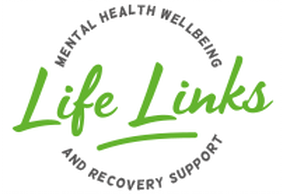
Written by Daisy Brown, Recovery Worker
Time to Talk Day 2022!
Please note: the content of this post may be triggering, so please take care when reading.
It’s here! Time to Talk Day is happening on the 3rd February 2022 and is the opportunity for you to start talking!
Time to Talk Day is a campaign run by Mental Health Charity Mind and Rethink Mental Illness, which aims to change the way we think about mental health. Too often in society, mental health is a taboo topic, despite 1 in 4 of us experiencing a mental health problem every year.
Why does understanding mental health matter?
Mental health problems are very common and often the symptoms are invisible and not spoken about. This can stop individuals from receiving the support they need through friends and family, or from professionals.
According to Mind:
- On average, people with mental health problems die 15-20 years earlier than those without.
- 1 in 5 people have suicidal thoughts in their lifetime.
- 1 in 14 people self-harm in their lifetime.
- 1 in 15 people attempt suicide in their lifetime.
Why is it important to talk about mental health?
According to the World Health Organisation, between 30-80% of people with mental health issues do not seek support. There are various reasons for this and a couple of them include the fear of being stigmatised, and not knowing how to get help.
Time to Talk Day encourages conversations about mental health to make people’s experiences more understood and less stigmatised through awareness. Mental Health charities that support Time to Talk Day also help to raise awareness of where individuals can go to get free support, and this is why Life Links are supporting the event!
What is stigma, and why does it happen?
Individuals with some characteristics (i.e. mental health problems) can be stigmatised, which is when a negative label is attached to their condition. A label can come about because certain characteristics of a group are misunderstood and seen as ‘different’ or ‘undesirable’.
Stigma can mean that labelled individuals are treated differently across society and may be discriminated against. This can make an individual feel ‘ashamed’ and judged by others. Stigma can come from various sources, including: the media, employers, friends and even family.
The Mental Health Foundation highlights that individuals who are stigmatised can come to believe the negative labels that they are given, which can worsen their mental health condition. The Mental Health Foundation notes that almost nine out of ten people who have mental health problems experience discrimination due to stigma. This is a staggering figure.
How did Leicester Life Links support Time to Talk Day 2022?
- Leicester Life Links hosted a Zoom workshop for members of the public, and a Teams workshop to Leicester City Council and Carer’s Centre, to encourage conversations about mental health in a safe, non-judgemental environment. The Workshops gave members some helpful information explaining Time to Talk Day, how to start a conversation about mental health, regulating our emotions and looking after ourselves, and how to help others using our active listening skills.
- In our free peer support groups, we completed some fun activities on conversation starters to encourage talk about mental health. In Creative Links we made some fun ‘chatter boxes’ as pictured below. We completed this relaxing activity during a mindful origami session and the members talked to each other about how they were feeling, and how they can support others with their mental health!
Here are some final tips to help you start some conversations about mental health!
Talking tips
Time to Talk Day is all about the power of small! There is no right or wrong way to talk about mental health, but we can try to approach the topic in a helpful way. The small conversations matter and getting started does not have to be awkward!
- Ask questions and listen. Asking questions can give a person space to express how they are feeling and will allow you to understand their experiences better. Try to make your questions open and non-judgemental: “How does that affect you?”
- Think about the time and place. Sometimes it is easier to talk whilst doing an activity (e.g. a walk or cooking) than sitting face to face in a quiet room. This may make the conversation more comfortable and natural feeling.
- Don’t try and fix it. Although it can be hard to see somebody you care about have a difficult time, try to resist the urge to present quick fixes if you were not directly asked for them. The chances are that the individual has already considered seeking help, and sometimes an ear to listen is effective enough.
- Treat them the same. When someone is experiencing a mental health problem, they are still the same person as they were before. When someone opens up about their mental health, they probably won’t want to be treated any differently, and doing so may discourage them to open up in future. Keep it simple and do the things you’d normally do with that person.
- Be Patient. No matter how hard you try, some people may not be ready to talk about what they are experiencing. It’s about encouraging openness and conversation, but not forcing it. The fact that you have tried to talk about their mental health is enough for them to know that you are open and understanding. This may make it easier for them to open up to you another time.
Active Listening Skills
When listening, there are some helpful things that you can do (using active listening skills) to encourage a person to talk and to show them that you understand and are listening.
- Pay attention. The first thing to do is pay attention to the person talking by focusing on what they are saying, and how they are saying it.
- Use the ‘Verbal Nod. It can be encouraging to the talker if the listener ‘verbally nods’ along to the conversation to show that they are interested. You can do this by periodically saying: “Mmhmm; Yes; I see”.
- Be comfortable with silence. There will be periods of silence during these conversations, and sometimes it is helpful to stay quiet as a listener. This allows the talker to think through what they want to say and add more as they think. It allows them to know that they have the listener’s attention and that there is no rush.
- Consider your body language. Body language accounts for a large portion of communication, and sitting in a relaxed, still and open position shows that you are relaxed, and the environment is safe and calm.
If you need to talk to someone about your mental health, consider contacting the organisations below:
- Samaritans: 116 123
- Crisis Line: 0808 800 3302




